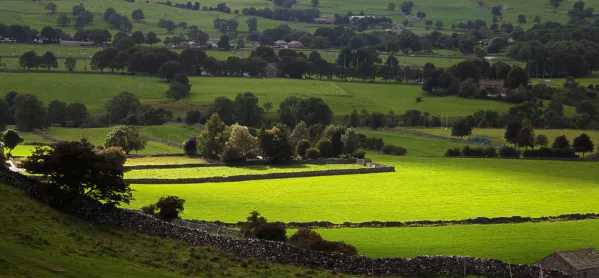The Church of England’s lead bishop for education has called for a cross-governmental rural strategy to help sustain rural schools.
Stephen Conway, the Bishop of Ely, was speaking after a Church summit that explored ways to safeguard the future of education in remote communities.
The event, which was not open to the media, took place in Lambeth Palace and was attended by schools minister Lord Agnew.
The bishop warned that efforts to keep rural schools open would be insufficient without a wider government plan for rural communities.
He said: “We have been reassured that the government has a presumption against the closure of rural schools, which is a positive foundation for the future.
“We have also heard from a number of stakeholder organisations, as well as those who are working with schools and communities across the country, who are exploring innovations in collaboration and the use of new technologies to improve pupil outcomes.
“However, it is clear that these steps alone are insufficient, and an overarching rural strategy is now required for the issues facing our countryside communities to be seen together.
“Such an approach is needed not only to give longer-term stability to our education provision, but for housing, infrastructure, broadband, agriculture, business and industry to be seen in the same lens.”
The summit on Tuesday was aimed at keeping rural schools viable.
The Church of England runs more than 2,000 schools that are classed as small, with fewer than 210 pupils; they account for a fifth of pupils educated at Church of England schools.
The Church’s chief education officer Nigel Genders said before the event: “All those attending have been given a simple instruction: to come equipped with ideas for working smarter and more closely in partnerships to maintain the rich diversity of educational offerings across the country.
“At their best, our rural schools provide all this in abundance. There will be no magic solutions for the financial challenges our rural schools face, and the right solution in one instance may not be a good fit for another.
“Nevertheless, as pupils, parents and staff at schools across the country look ahead to nativities, carol services and a well-earned rest at the end of a long term, they can do so with the promise that we are working just as hard to keep rural schools [as] a nurturing environment in which pupils and staff can continue to thrive.”
Bishop Stephen added: “Over the past 200 years, Church of England schools have adapted to significant changes in society and we are confident they will continue as rich expressions of their communities long into the future.
“But the countryside is not uniform, and requires a joined-up approach to give its communities the opportunity to thrive for generations to come. We are committed to working with the government to achieve this.”
Earlier this year, Tes reported that the Church of England was lobbying the government to change the law to make it easier to close small village schools - where it was agreed that this was in the “educational interests of children”.
There is currently a legal presumption against closing rural schools, and before one is shut, a number of factors must be considered, including “the likely effect of the closure of the school on the local community”.
But the Church of England, which runs more than 70 per cent of rural schools with fewer than 110 pupils, has called for the rules to be reviewed “to ensure decision-makers focus on the educational interests of children”.




